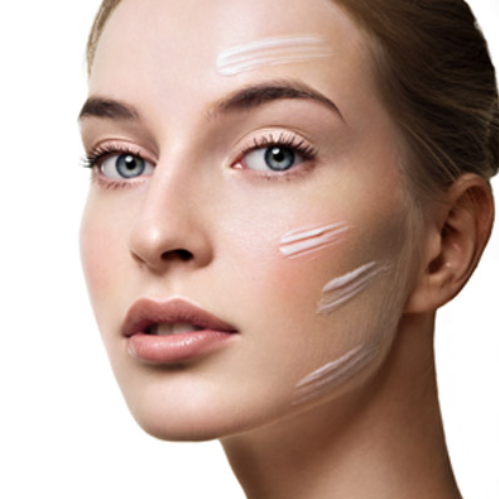Think You Have Sensitive Skin? Here’s How You Can Tell For Sure
Is your skin easily irritated? Is it prone to getting inflamed, itchy, or dry? If this sounds familiar to you, you may just have sensitive skin. Whether you’re trying a new product, generally overheated, or susceptible to razor bumps after shaving, your sensitive skin probably has a reaction to just about anything.
According to The International Society of Dermatology, 44.6% of Americans claim to have sensitive to extremely sensitive skin. A study conducted by the U.S. National Library of Medicine states nearly 45% of those polled felt they had sensitive or highly sensitive skin, with subjects citing reasons ranging from skin type to dermatological disorders for their declaration of sensitivity in the skin.
Some sensitive skin sufferers can even break out in rashes or hives from the wrong product. If you feel like you’re constantly trying to find ways to soothe your skin issues, and can’t purchase certain products because of fear of a reaction, you probably have sensitive skin.
Skin conditions such as eczema and psoriasis can also be classified under the “sensitive skin” umbrella, as people with these conditions have to be wary of products and environmental factors that could initiate a reaction. Currently in the U.S., 31.6 million people deal with eczema every day, and nearly 8 million suffer from psoriasis.
For the average person with sensitive skin, it can present itself in a variety of ways: acne, razor bumps, redness, dryness, even being prone to rashes and hives as a result of trying a new product are a sign of sensitive skin.
What Causes Sensitive Skin?
Any number of things can contribute to sensitivity in the skin. Genetics, environment, weather, hormones, hard water, and various household products can all be at the root of reactions in skin that is prone to sensitivity.
The National Institute of Health reports that severe weather is the most commonly reported reason behind most Americans feeling they have sensitive skin. Visual (redness/swelling) and sensory (burning/stinging) reactions to products was also selected as the reason. The environmental factor most strongly associated with sensitive skin was stress.
If you think you may have sensitive skin, be mindful of the products you use. You can’t control the climate, your genes, or hormones but you are in control of the products you’re buying. Makeup, lotions, detergents, soaps, and more can all cause flare-ups in sensitive skin. Unscented, natural versions of these products can help ease and soothe your skin.
Sensitive Skin Checklist
If you have sensitive skin, you most likely have noticed a regular pattern of irritation when trying new products or when you’re exposed to environmental factors or toxins you’re not used to.
Sensitive skin doesn’t discriminate based on gender, either. The National Institute of Health reports that 62% for women and 52% for men have reported they feel they have sensitive skin or are easily prone to dermatitis.
The most common signs of sensitive skin:
- Reactive skin in the form of pustules, skin bumps, or skin erosion
- Very dry skin
- Redness and irritation
- Itchiness
- Stinging or burning
- Extreme dryness, flakiness, or peeling
- You develop rashes regularly
- Prone to breakouts
- You sunburn easily
Things To Avoid When You Have Sensitive Skin
As mentioned above, products that contain a lot of synthetic fragrance, heavy dyes, or harsh chemicals can inflame and irritate your skin. It’s best to choose basic, natural ingredients to keep your skin smooth and soothed. A little coconut oil or shea butter for moisturizer can go a long way!
If you want to buy a new makeup item, soap, or lotion but are worried about the potential effect it can have on your skin, do the “patch test.” Test the new product on a small patch of skin for 24 hours to “sample” it out, especially if you’re considering a new facial product. Beauty samples are your new best friend!
Patch testing can also be used to identify signs of allergies that care causing or contributing to your sensitive skin. It’s difficult for doctors and dermatologists to narrow down exact causes, so a patch test can be very helpful.
Sensitive-Friendly Skincare Tips
- It’s all about the routine.
A proper skincare routine is essential, no matter what your skin type may be. For sensitive skin, washing the face once per day should be enough to keep it clean. A calming facewash or one specifically designed for sensitive skin would be a good choice. Keeping your skincare routine predictable and choosing products you know are safe for your skin is the way to go.
- Go easy on the exfoliation.
Exfoliating, it must be noted, can worsen skin that is already prone to sensitivity. Try limiting exfoliation to once or twice per week. It can help remove dead skin cells and freshen up your skin, but overdoing it can make sensitive skin feel raw or irritated.
- Calm and soothing are sensitivity keywords.
Natural, calming ingredients, like green tea, chamomile, and aloe are beneficial for soothing skin. A cream-based, calming moisturizer or gentle, foaming facewash is ideal for keeping sensitive skin from getting irritated.
- Choose the right moisturizer.
If you’re worried about chemicals or trying new products, you can always use a natural moisturizer like coconut oil on days when your skin is feeling extra dry. A general rule to follow when shopping: the fewer ingredients listed in a product, the better off your skin will be.
- Acidic products are not your friend.
Products containing acids, such as lipoic acid, glycolic acid and salicylic acid, may be irritating to sensitive skin. For that reason, caution must be taken with any skincare product containing these types of active ingredients.
- Be careful when changing up skincare products.
If you want to buy a new makeup item, soap, or lotion but are worried about the potential effect it can have on your skin, do the “patch test.” Test the new product on a small patch of skin for 24 hours to “sample” it out, especially if you’re considering a new facial product. Just be mindful of the products you choose. Makeup, lotions, detergents, soaps, and more can all cause flare-ups in sensitive skin. Unscented, natural versions of these products can help ease and soothe your skin.
- Sensitive skin can still be protected from aging.
Are you worried that an anti-aging serum or similar product may make your skin flare up, so you avoid them? To help prevent fine lines and wrinkles and also help reduce irritation, sensitive skin sufferers can use a mild retinoid every night followed by a moisturizer to stimulate collagen production.
- Cosmetics that pass the sensitivity test are best.
Face powder has the least amount of preservatives in it when it comes to makeup and cosmetics, which offers a minimal risk of irritation. Silicone-based foundations are also recommended for sensitive skin. You may want to avoid waterproof cosmetics, because those require a special type of cleanser that isn’t always sensitivity-friendly.













